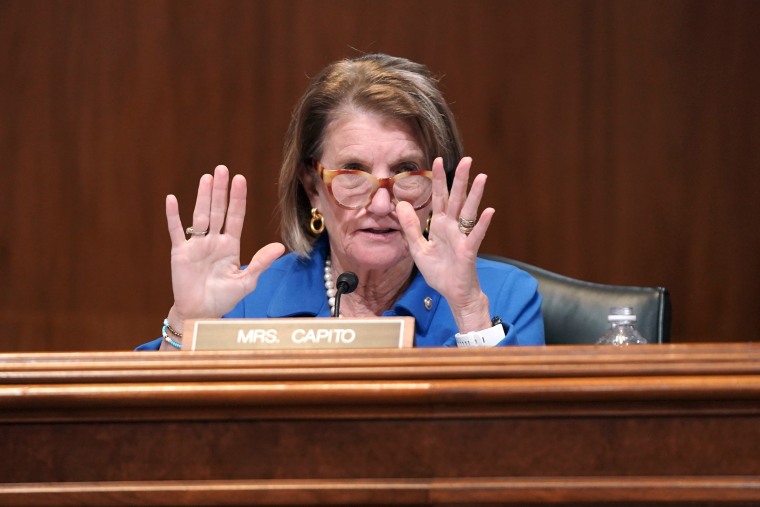Sen. Shelly Moore Capito (R-W.Va.) is one of the Senate Republicans working on an alternative to the White House infrastructure/jobs plan, and this week, she told CNBC she has a price tag in mind: a package costing between $600 billion and $800 billion, she said would be in the "sweet spot" for a bipartisan agreement.
As we've discussed, there's no shortage of problems with such a pitch -- the West Virginia Republican apparently hopes to slash the Democratic proposal by roughly two-thirds -- and yesterday, Capito suggested she isn't even wedded to her own goal. "I just kind of threw that out as a talking point," the senator said.
It's a deeply unfortunate approach to policymaking: Capito appears to have picked a number, not based on any real substantive analysis, but based on the idea that the GOP offer should simply be vastly smaller than President Joe Biden's proposed investments. It's governance based on hunches.
But that wasn't the only notable thing Capito said yesterday.
She described Biden's proposal to pay for infrastructure spending by undoing much of former President Donald Trump's 2017 tax cuts as "a non-negotiable red line" for Republicans.
Oh my.
At the heart of nearly every major investment initiative is a simple question: how will officials pay for it? In this case, the White House intends to finance infrastructure investments in part by scaling back much of the Republicans' corporate tax break from 2017.
The idea has a lot going for it. Raising the corporate tax rate from 21% to 28%, for example, is quite popular with the American mainstream. The idea has also drawn support from Gary Cohn -- who helped negotiate the Republican tax plan as the then-director of Donald Trump's National Economic Council.
Perhaps most importantly, the GOP's corporate tax cut -- the one Democrats intend to scale back in part -- set out to achieve certain policy goals, and failed spectacularly.
And yet, as the debate over infrastructure investments begins in earnest, and Republicans explore the possibility of presenting an alternative blueprint that could be used in negotiations, the GOP has apparently decided the obvious financing solution is the one thing the party will not even consider.
It's a "non-negotiable red line" for Republicans.
Such a bizarre posture is likely to have real consequences: the more GOP senators refuse to work in good faith toward a meaningful solution, the more likely it becomes that Democrats decide to simply pass their own bill through the budget reconciliation process, leaving Republicans behind.
To be sure, Democrats such as West Virginia's Joe Manchin don't want that to happen, but Congress' most conservative Democrat also recently said that Republicans aren't approaching the debate in a "reasonable" way.
Whether she intended to or not, by drawing a "non-negotiable red line," Capito is making it more likely, not less, that an ambitious American Jobs Plan will advance over the GOP's objections.

